Financial planners and common sense should always lead you to believe that owning a house is better for your financial health than renting one. But does that apply to Fulltime Families living the RV lifestyle? Let’s unpack that a little. This piece will walk you through the question, “Should I be Renting out or selling my house before hitting the road?”
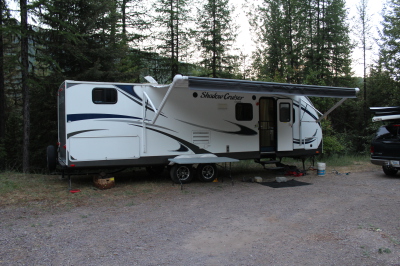
Going fulltime can be quite daunting! There is so much to figure out and do;
- What are you doing with all of your belongings?
- Selling?
- Storing?
- Where are you storing it?
- Donating, giving away or throwing away?
- What state will be your domicile?
- Is it the state you already live in?
- What will you use as your primary address?
- Where will you get mail?
- What are the home school laws?
- Buy an RV & tow/tow’d vehicle
- I don’t even want to dive into this rabbit hole in this post! But it’s a major hurdle to leap when hitting the road and there are plenty of great resources out there for RV selection.
- Are your kids school age?
- Have they been in public school or homeschooled? What are your plans for schooling?
Your going fulltime!
You have made up your mind and have decided to launch into the alternative lifestyle of fulltime RV living. Time to plan and to put your plan into motion. You have to consolidate a traditional home (the average size home in the US is just over 2300 SQ FT) into a very small home on wheels (The absolutely largest RV you will find will be 400 SQ FT).
What do you do with the largest asset/liability of them all? A house is the single largest purchase most people will ever make in their lifetime.

The median value of homes in the United States is approximately $263,351. United States home values have gone up 7.5% over the past year and Zillow predicts they will rise 10.3% in the next year.
What have those that have gone before you done?
We are lifetime members of Fulltime Families, so I polled the members to find out what others have done in the past. My research shows that approximately 78% of Fulltime Families polled had owned their home before hitting the road. And of those that owned a home, 79% of them sold it before hitting the road.
What did we do?
My family and I were part of both of the larger percentages when we hit the road as we owned a home, and sold it before launching. The biggest reason we sold instead of renting is our mortgage was on the high end of what we would have been able to rent the house for. So although it would have produced positive cash flow, it would have been just enough to cover expenses plus a little bit. In addition we lived in a manufactured home, and they typically accrue wear and tear faster, and we did not want to deal with the additional depreciation from renters.
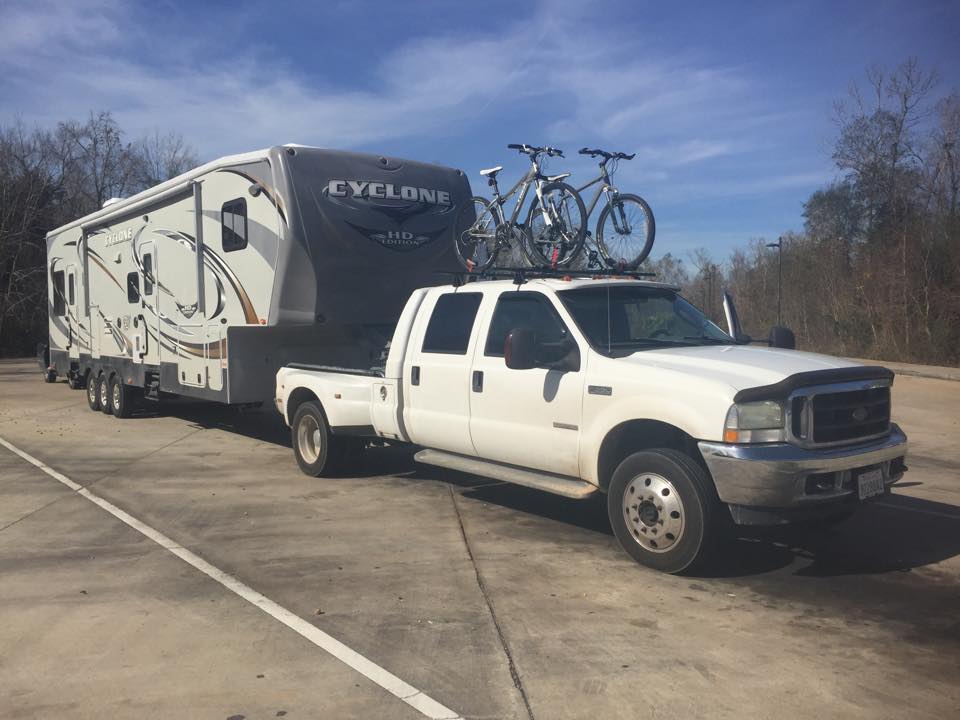
In hindsight, we may not have made the right decision though. Real estate values here in NW Montana increased 30% in the 3 years (2016-2019) we were on the road, and another 30% in the year and a half since we have been back in the area. We could have made quite a bit of profit in the long run if we had held onto that house and rented it and sold it later.
There will always be what if’s, coulda shoulda woulda scenarios in life. Navigating through these decisions can make or break your financial health in a traditional sticks & bricks life as well as living the Fulltime RV lifestyle.
Before you make any decision regarding the buying, selling or investing in real estate, please talk it over with an accountant or tax professional.
So you have decided to hit the road fulltime, and are wondering what to do with your house. Transitioning to a life on the road is full of risk, there is no denying that. Whether you decide to sell or rent, there is plenty of risks to go around. So let’s start with the minority, renting.
Renting your home out.
Depending on your market and the size of the mortgage payment you have on your home, you can definitely produce some positive cash flow by renting out your house. Let’s dive in!
In my personal opinion, there is a greater risk in renting than selling. No one is going to treat your home as well as you will. That is a fact. A majority of renters you find, will not take any ownership in your property, and at the end of the day, they are still just renting and you’re the one gaining equity with their rent payments.

If you are going to rent out your house, I suggest that you have 6 months of expenses set aside in the event you lose your renters and additional funds for repair and maintenance or emergencies as they come up.
So decided to rent your house out, here are a couple questions to ask yourself first:
What are our fulltime plans?
- Do you have a set time frame you are planning to be on the road?
- Are you planning to return to the same location often? How about when you’re done fulltiming?
What other benefits does our property have for us?
- Maybe your property has some extra space in the basement, garage, or yard/shed that you can close off and store your possessions in while you are traveling.
- In addition to providing positive cash flow, it can save you money each month on a storage unit.
- If you had a place to store your belongings, would you need to liquidate as much as you thought?
- Is there space for an RV pad on your lot?
- Having a “home base” is something that can come in handy.
Should we rent it out short or long term?
There are many ways to rent out your property. Let’s talk about some of those options.
Long Term Rental
This would be the most traditional way to go about renting out your house. You can lock in your tenants with a long-term lease, and have a steady income for a set time period.
Long Term Pros:
- This would be the safe approach to renting out your home as you would have consistent renters you can set the terms; whether its 6 months, a year, or?
- I would consider starting with a 6 month lease to give your family time to see if RV living is for you. That gives you flexibility in the event you need to move back in sooner than later. If after the first 6 months you are still going strong, make sure to renew the lease with your tenants, I would NOT suggest going month to month. The first 6 months are usually the make or break it for first time fulltimers.
- Long term rentals are easier to manage: Whether you choose to manage the property yourself or hire a property manager, long-term rentals require less time. You don’t have to advertise the property as frequently, handle constant tenant turnover, or make sure the property is ready to rent.
- The tenant usally pays the utilities in a long term rental, and you can require renters insurance in the lease.
Long Term Cons:
- If you need to move back in for any reason, you will have to wait for the lease to expire, or break the lease and end up spending quite a bit of money to do so. And to break the lease, you will need to give the tenants at least 30 days’ notice or more. Some reasons you might need to move back in:
- RV living just isn’t for you?
- There is a catastrophic failure to the RV, and you have nowhere to go?
- A job offer comes along back home that you cannot refuse and you’d rather not live stationary in a RV?
Make sure to find out if your town, neighborhood, or building allows for long-term rentals — many cities and homeowners associations prohibit them.
Short Term Rental;
The most common definition for a short-term rental is the rental of a dwelling (house, townhouse, condominium, apartment, and secondary suites) on a platform for less than 30 days. In most cases, a short-term rental is fully furnished from couches and beds to pots and pans.
Some examples of platforms for short-term rentals are VRBO or AIRBNB (There are others, but these are the 2 most popular).
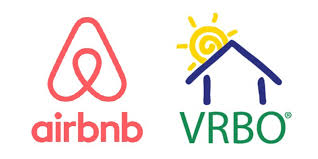
- What is the difference between Airbnb and Vrbo? Which vacation rental site is best for you? Airbnb has more properties, but Vrbo is more customizable. Both of these sites are very similar but have a few different features to them.
- Make sure to find out if your town, neighborhood, or building allows for short-term rentals — many cities and homeowners associations prohibit them.
Short Term Pros:
- Short-term rentals produce higher income typically than long-term rentals. Rentals are typically nightly or weekly.
- In addition to the higher income potential, owners of short-term rentals have the additional benefit of being able to increase rates as they see fit. If inventory is filling up quickly, an owner can raise the rent to maximize profits.
- Personal use, if you are in your home area, just take your house off the rental market and you have your home to be in while visiting the area.
- You can move back into your home pretty much whenever you want without breaking a lease or any additional expense.
- Rentals are booked and managed by a 3rd party leaving you hands off on the renting side of things.
Short Term Cons:
- The house will need to be furnished. This should include any and everything that a short-term renter will need to use your property: fully furnished, linens, cooking utensils, dishes, etc…
- Service fees – Airbnb charges hosts a 3 percent fee that covers the cost of processing payments. HomeAway, which owns VRBO.com, charges hosts for listing their homes on the site. People planning to use the site regularly can pay $349 annually to advertise their property and are not charged a commission for each booking. Those renting their homes out less frequently can opt to avoid the annual fee by paying 10 percent for each booking made through the site instead.
- Taxes – One of the biggest issues hosts need to be mindful of (aside from the fact that a stranger will be staying in their homes) is the tax bill they might face. The implications vary based on how long you’re renting it out for. Be sure to talk with a tax professional about the tax laws in your area before making your decision on how to rent it.
- Insurance – Call your insurance company to see what is covered. Some home insurance policies cover short-term rentals. But if there are multiple short-term visits, the insurance company might require you to buy a business policy that would cover a hotel or a bed and breakfast.
- Utilities will be your responsibility.
- You will need to have someone to monitor and maintain the property
- Cleaners between renters
- Stocking toiletries
- Yard upkeep
- Repairs and maintenance as it comes up
Of those I polled, under 15% of those Fulltime Families rented their homes out when going fulltime, and just under 3% did short-term rentals.
While we are out traveling the country, Who is managing our rental(s)?
If you find a renter before you launch, you could manage it from the road as far as the financials, but what if:
- a water main breaks?
- The roof leaks?
- A wind storm blows a tree over?
- The renter moves out unexpectedly?
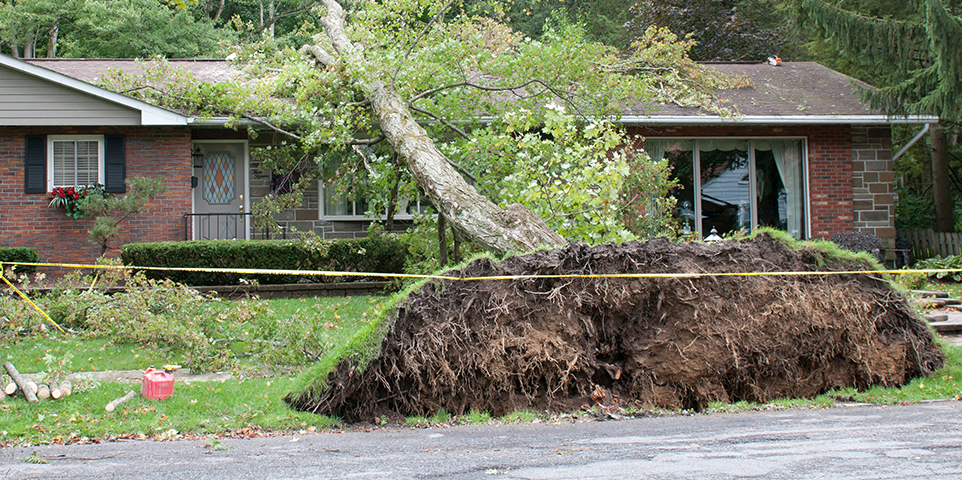
There are a million little things that can happen in home ownership, and you will definitely want someone with boots on the ground locally to help you with problems that can arise whether you are renting it out short or long-term.
Maybe it’s family or friends renting it from you and you don’t need local help. That’s fine as long as both parties have a clear understanding of what’s expected of them.
What if you want to be hands-off, so you hire a property management company or a family member to manage your property? You can definitely hire someone, but remember it’s less money in your pocket.
It’s been said before, but with great risk, comes great reward.
Owning a rental property is definitely something I categorize as a great risk, but you can definitely reap the rewards if you choose to rent out your house while living fulltime in an RV.
In the long run, you are creating more equity in your property, and as in our case, the property values rose drastically which could have netted a huge return had we chosen to keep it long-term and sold it later.
I have barely scratched the surface of this subject, and I cannot stress enough, if you are going to use your home to produce income, make sure to talk to an accountant or tax professional before making any decision.
Sell the house!
You own your home, and now you want to trade it in for a home on wheels. You have decided that you want to sell your house before going fulltime, that is a safe bet for sure.

Why sell?
- The biggest advantage to selling your house before hitting the road would be the cash flow! Depending on the amount of equity you have in your home, you may be able to:
- Eliminate debt?
- Do you need to purchase your RV?
- If you can, I recommend paying cash for your RV. With cash you can negotiate a better deal most of the time and it is incredibly hard to get financing on an RV if the lender knows you plan to live fulltime in it. shhhhhh
- Fund your fulltime life or save it so you have emergency reserves.
- We took some of the proceeds from our house sale and bought a Thousand Trails Membership and some other odds and ends we needed to hit the road.
- Prepay for as many things as you can: Vehicle registrations, Car/RV insurance, etc…
- No loose ends; We considered renting out our house when we hit the road, but the wear and tear on the property weighed heavily on our minds, so we sold leaving us with no more than a small storage locker in our hometown.
- A clean slate! Hitting the road might not just be about travel and adventure for you, maybe you want to find a new place to call home. I have known many people that have used RV living as a vessel to find a new home.
Why not sell?
- Maybe the road isn’t for you?
- The fulltime lifestyle can be very challenging at times. If you sell, you will have to find and buy a new home upon returning “home”
- If you have tied up the proceeds from selling your home into your RV, it’s not as liquid, and could take some creative planning to get the cash together to buy another house when you come off the road, especially if you are living in the RV through the home buying process.
So you have decided to sell, the first thing you should do is look at a calendar!
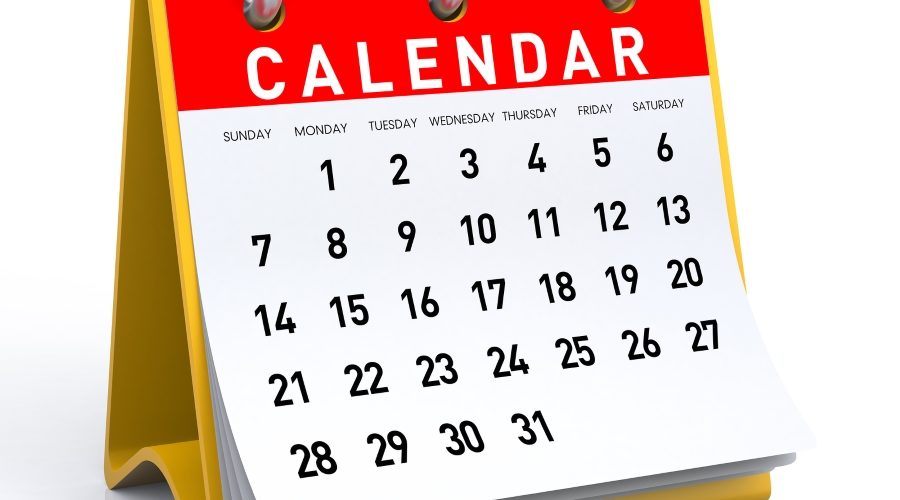
- When do you want to launch?
- Are you ok with launching before your house sells if it takes longer than you are hoping?
- When is the best time to sell in your area? How well does that coincide with your launch date?
- Typically spring is the best time to sell, does that work for you?
- Do you need to sell your house before you can buy your RV?
- Where will you stay after your house sells until you find a RV?
- If you don’t have the funds, can you borrow the money to buy a RV to eliminate any lapse in time between homes and then pay off the balance when you close?
- Family members
- Bank/Credit Union Loan (since you technically still own a primary residence it will be easier to finance a RV than when you become houseless)
- How long is it going to take to get your house ready to list?
- How fast is the market moving in your area?
- Are you renovating a RV, will it be ready before your house sells?
Time is of the essence, and you will need to plan accordingly.
You only 1 chance to make a first impression
You have decided to sell your house, you have a timeline mapped out, and now you want to maximize your return and make sure it all happens within your timeline.
They say first impressions make or break any deal, and that is particularly true with selling your house.
I would suggest is have a home inspection done immediately, before calling anyone else. Not necessarily just a pre-listing inspection, I would have a full inspection done. It will cost you a little bit more, but will be much more thorough. This should reveal any repairs that should be made and can save you time and money later in the deal. Then when you list the house, I would provide the inspection report and receipts for any repairs as a part of the listing packet for potential buyers to see. Be as transparent as possible!
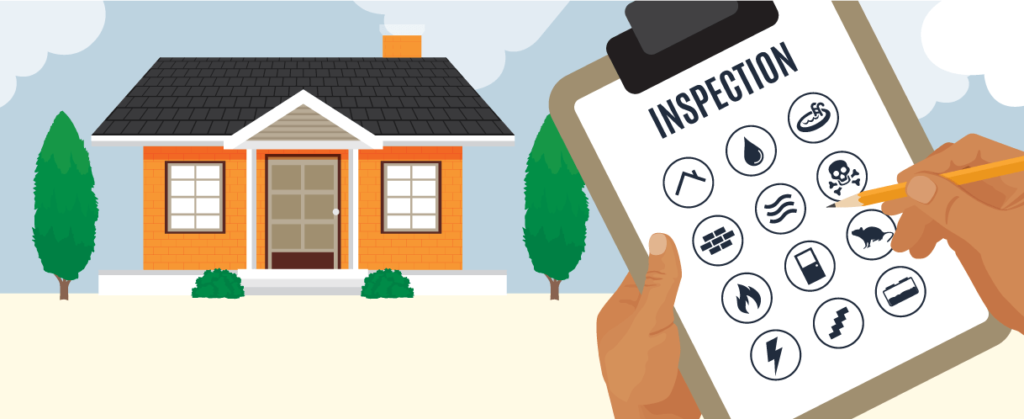
Do you have reno projects you’ve been putting off? Now is the time to cross them off the to-do list. Spend a weekend fixing the leaky faucet, painting, repairing the broken fence, or patching holes. Although paint does NOT add any actual value, it can definitely improve the appearance and make your house more appealing to potential buyers.
This goes without saying, but clean the house! Have any carpets professionally cleaned? And in addition to your regular weekly cleaning, you should clean windows and screens, disinfect bathrooms, and polish kitchen appliances.
Don’t forget, you’ll need to clean regularly throughout the time your home is on the market! This isn’t a one-time task. Don’t pack away cleaning products just yet, make sure you can easily tuck them away after you’ve cleaned each time.
The seperation is in the preperation.
When it comes time to sell, you’ll need copies of permits for past renovation work, home warranty documentation, land surveys, tax bills, and utility bills. Assemble these in advance so you don’t have to go digging around right as you’re preparing to list.
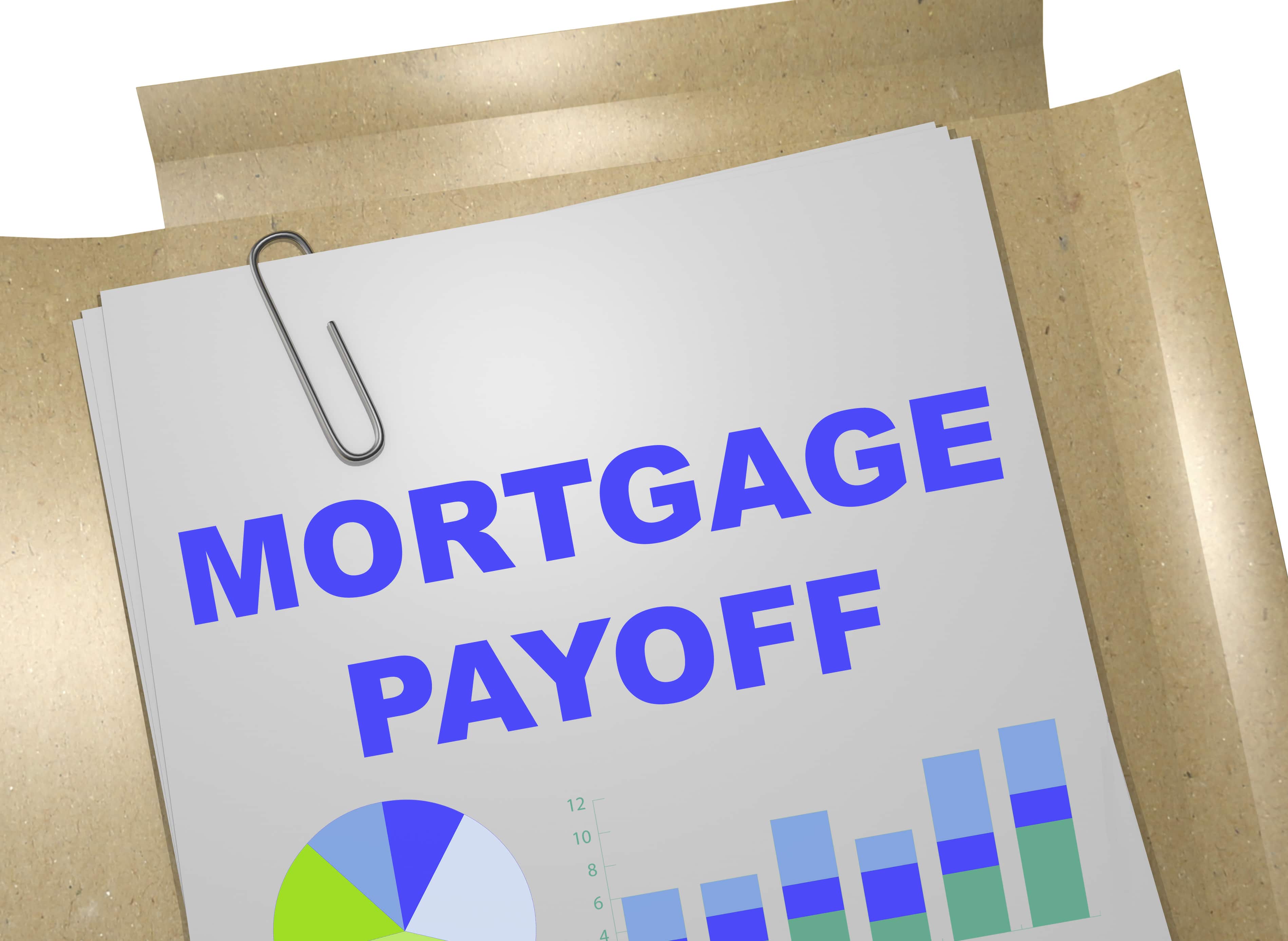
An important piece of information you’ll need is your mortgage payoff amount. The final amount will change a bit by the time you’re ready to close. Getting an estimated payoff amount, including remaining loan balance, applicable interest and prorated property taxes can help you determine how much you’ll profit at closing.
Should we vacate the house?
It’s ok if you are still living in the house when listing, but you will want to declutter it. It’s likely you have already started downsizing, so starting the decluttering process early will save you from the last-minute scramble of getting rid of stuff right before listing and eventually launching. I am not saying that you’re messy, I’m just saying that potential buyers will want to be able to envision your house with their belongings inside, so the more open the spaces are, the better. You might even consider getting your storage space set up early to set aside things you won’t need or plan on storing anyway.
Go room by room eliminating any unnecessary furniture taking up valuable space. Avoid the temptation to cram things into closets. Buyers look for homes with ample storage space, and full closets can make it look like your home doesn’t have enough space. Try to only use about 50% of your available closet space.
Lets list it!
Your house is ready to list, you can go about it a couple of different ways. If you have time, you could list it For Sale By Owner. You would cut out the listing agent, and save money on their commission, but be responsible for everything an agent would do.
Consider this though, studies indicate that FSBOs fetch approx 30% less for their owners than agent-listed properties, and 90% of FSBOs wind up listing & selling with an agent in the end.
And you’re probably going to have to pay a commission anyway if your buyer is represented by an agent. The buyer’s agent’s commission is typically factored into the deal, although you’ll still save on the commission you would otherwise have paid your own agent.
Things to look for in a listing agent
Make sure you do your research before selecting a Realtor® to list with so you can maximize your return. Shopping for a real estate agent to hire is kind of like looking for a used car at a used car lot. Lots of lip service!
I recommend you:
- Do your research!
- Contact your local Association of Realtors, they can provide statistics, and feedback on local market trends and agencies.
- Talk to friends and family, then look at reviews online. But take those recommendations with a grain of salt as the average person knows 3-5 real estate agents.
- Interview 3-5 agents preferably from different brokerages, ask lots of questions
- What is the overall commission?
- Have them go over a recent local market analysis for you, ask about:
- Average list price vs Average Sale price
- Average days on market
- Sale to original list price ratio
- Ask them for Comparative Market Analysis for your house, and to provide net sheets for 3 different possible price points based on the CMAs and their recommendation
- Did they have a listing presentation?
- Have them explain to you their marketing plan in detail
- What online platforms do they market on? Do they have any analytics from their social media marketing?
- How many agents are in their brokerage? How do they market their listings in house?
- Will there be open houses?
- YES, opening your home to open houses creates buzz around your listing, so encourage your agent to hold them. After all it can benefit the agent far beyond your house sale.
- Tell them that you’re taking your life on the road, and see how seriously they take you. In my experience, there is definitely a great divide between the reactions you will receive from people about your lifestyle change. So make sure you are working with someone that takes you and your choices seriously and is going to have your best interests in mind.
- Do they use a professional photographer?
Whether you’re selling with an agent or on your own, professional photographs are a must in today’s market. Check to see if your photographer can also capture a virtual 3D house tour and aerial drone photography to give your listing a boost in online views. Before your appointment, make sure rooms are sparsely furnished, depersonalized, bright, welcoming and photo-ready.
Showing your House
- Think through the logistics of showings.
- Will you allow lockbox tours?
- How much notice will your agent need to give you for a showing?
- Where will your family go during showings? (It’s best that the homeowner isn’t present.)
- Where will you store valuables like jewelry, documents and medications during showings?
- Will there be open houses? (repeat)
- YES, opening your home to open houses creates buzz around your listing, so encourage your agent to hold them. After all it can benefit the agent far beyond your house sale.
You have an offer?
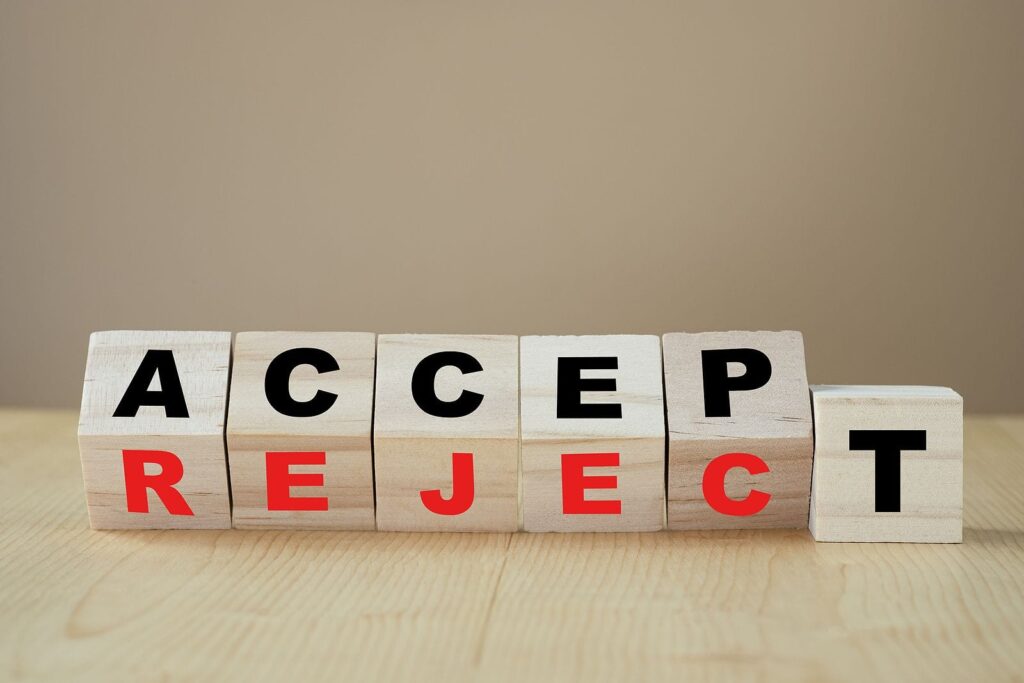
There is an offer on the table! You are celebrating! But make sure to look over the offer carefully to make sure it meets your needs.
- Do the dates work with your timeline?
- Ask your agent to provide a net sheet to see what the proceeds will be with the offer.
- What contingencies are written into the offer?
- Financing?
- Is this contingent on the buyer selling another property first?
- This could add substantial time to the length of this escrow and may not work out well with your plans.
- Did they include a pre-approval letter wiht the offer?
- No? Have your agent ask the buyer’s agent for one before responding. If the buyer is not prequalified, you should consider passing on this offer until they can provide a pre-approval letter. If you accept the offer without, you could waste valuable time and miss out on an offer from a qualified buyer.
- How much earnest money are they offering?
- Is this contingent on the buyer selling another property first?
- Inspections
- You should have already had one done, and there shouldn’t be any surprises here, but the buyer will have an independent inspection done usually.
- Appraisal
- This is very common if the buyer is financing the property. Make sure your agent stays on top of the buyer’s agent to make sure this is scheduled and happens on schedule.
- Repairs
- When the inspection date comes and goes, make sure your agent is on top of the inspection notice. If any repair requests are made, whether you are agreeing or not, make sure to respond to them as quickly as possible to keep the ball rolling.
- Financing?
You definitely want to take the first offer very seriously, there’s usually a motivated buyer behind it. They are excited about your home and want to act quickly to beat out the competition. They’ve likely spent enough time in the market to know what inventory is out there for what price and have taken this into account when writing their offer.
Even if this first offer is on the lower side, you can respond with a counteroffer to get the selling price into a range more acceptable by you or counter with an escalation or bump clause to leave open the door for a better offer. But do not feel obligated to accept the first offer, or if you do accept it, make sure your agent knows that he should be looking for backup offers in case the first offer falls through.
Under contract!

So you have an offer you like, and have accepted it. Whoop Whoop!! You are under contract! Get out a calendar, and mark down the important dates from the contract. Do these dates work for you? You will want to stay on top of this, and ask your agent about the status of these dates before they come up.
- Closing date
- Can you be out of the house by this date?
- If it might be close, you can ask for time from the buyer, it’s best to present this as soon as you know if it’s an issue. If you know the dates might be tight before accepting the offer, maybe counteroffer with the original closing date, but ask for 7 days (how many days do you need?) after closing to vacate.
- How many days are offered for extension on financing?
- Can you be out of the house by this date?
- Earnest money date
- Inspection contingency date
- Resolution date
- Insurance contingency date
- Appraisal date
Your agent should be managing this all throughout the escrow process, but I would stay on top of the dates and check in with them often to prevent any surprises.
Closed!
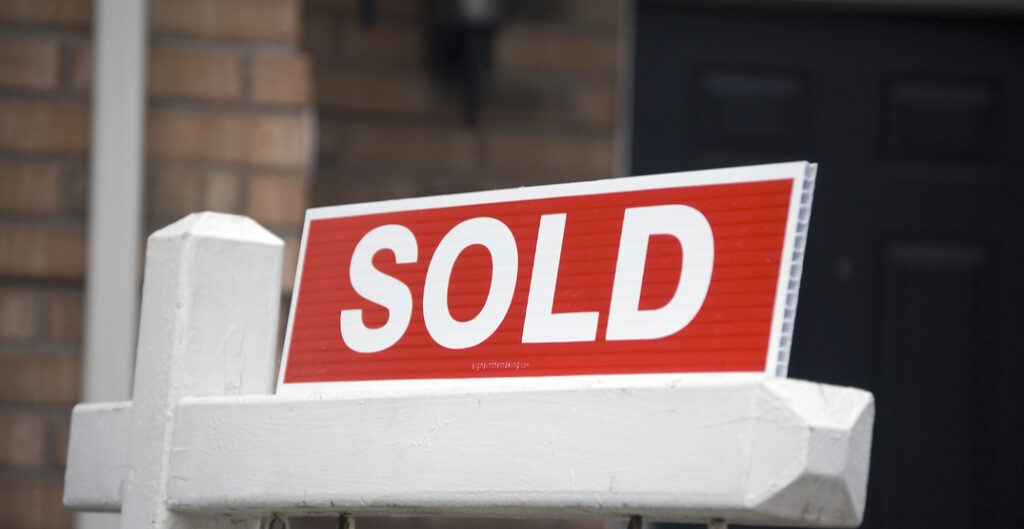
You have signed on the dotted line, you have a check, congratulations, you are now houseless.
In Conclusion
When you are planning to go fulltime and embrace the RV lifestyle, there are many choices to make. None of which are bigger than what to do with the single largest purchase of your life, your home!
I am not trying to convince you that selling is a better choice than renting, or vice versa, but I hope I have convinced you that this is a huge decision to make, and should not be done lightly.
My advice to you:
If you are wondering what to do, get a CMA or appraisal done on your house. This should shed some light on the value of your home whether you are selling or renting in your local market. Then take those numbers to an accountant or tax professional and let them and the numbers help guide you in your decision.
If you have any questions about any of this, feel free to give me a call or drop me a line and we can discuss it further. I am a licensed Realtor® in the State of Montana and cannot conduct real estate business outside of the state, however I can help walk you through options, and I work with Keller Williams, the largest Real Estate Brokerage in the world and have over 180,000 affiliates to refer to around the country.
Stats provided by:
National Association of Realtors
Montana Association of Realtors
NW Montana Association of Realtors
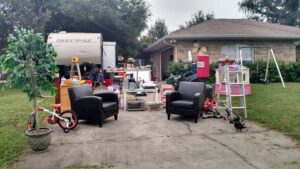
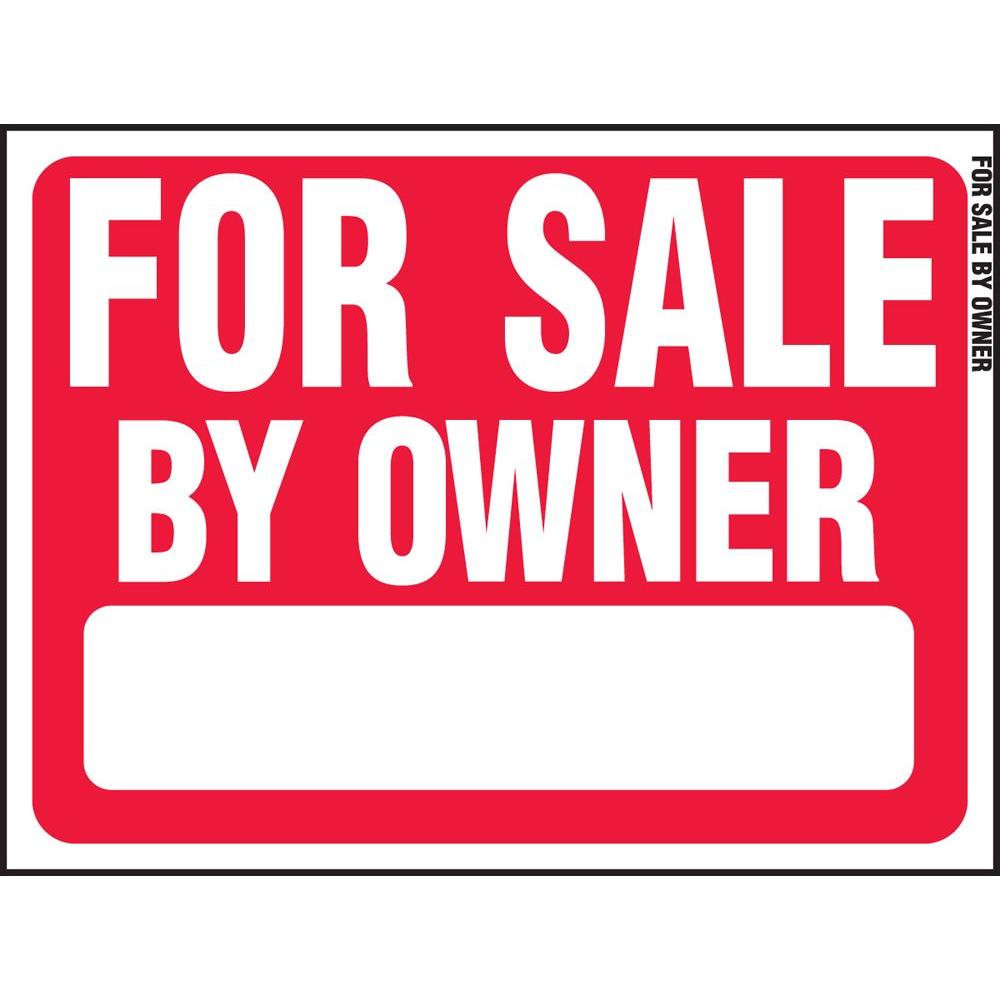

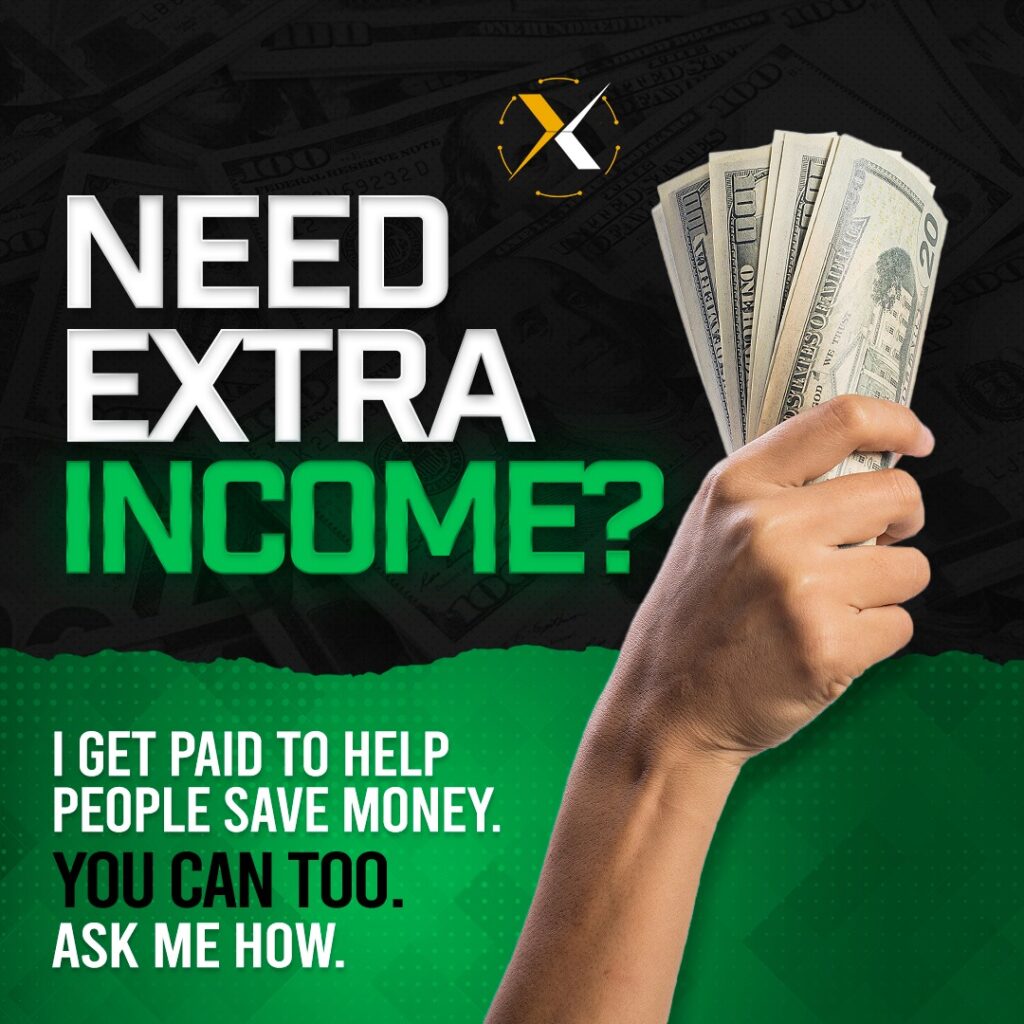
Pingback: How to Make Money as a Fulltime RVer - Roadschool